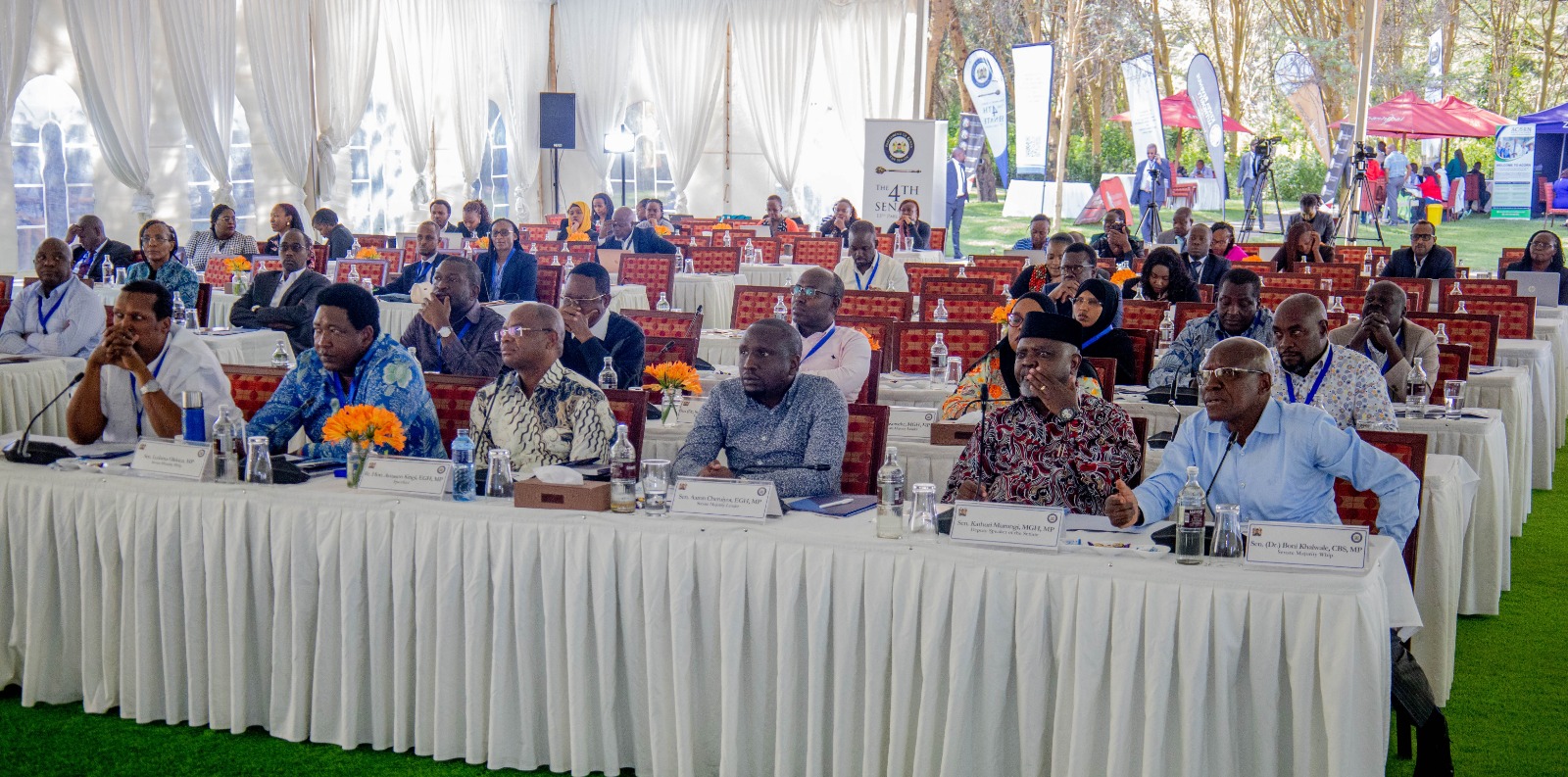𝐖𝐄 𝐒𝐇𝐀𝐋𝐋 𝐍𝐎𝐓 𝐀𝐋𝐋𝐎𝐖 𝐀𝐍𝐘 𝐂𝐎𝐔𝐍𝐓𝐘 𝐓𝐎 𝐋𝐎𝐒𝐄 𝐌𝐎𝐍𝐄𝐘, 𝐒𝐄𝐍𝐀𝐓𝐎𝐑𝐒 𝐕𝐎𝐖
A section of Senators have strongly opposed the Commission on Revenue Allocation’s (CRA) proposed Fourth Basis for Sharing Revenues among county governments for the financial years 2025/2026 to 2029/2030.
The lawmakers, speaking during the second day of the Senate midterm retreat in Naivasha, Nakuru County, expressed dissatisfaction with several aspects of the proposal presented by CRA Chairperson CPA Mary Wanyonyi. They argued that introducing a new revenue-sharing formula was unnecessary especially when the previous one had not been fully implemented.
Sen. Boni Khalwale questioned the rationale behind replacing an existing system that was still functional. “If the machine is working, you don’t have to fix it,” he remarked, signaling his skepticism about the need for a new framework.
Nairobi County Senator Edwin Sifuna was particularly vocal in opposing any reduction of resources to any county stating that he would resist any proposal that resulted in financial losses. “I will not appreciate any formula that will make Nairobi or any other county lose money,” emphasized Sen. Sifuna.
Mandera Senator Ali Roba who chairs the Senate Finance Committee emphasized the importance of allocating more funds to counties based on the significance of the functions they perform. He pointed out that counties are responsible for essential devolved functions and should therefore receive increased funding. “Counties are holding devolved functions that are very basic. There must be a marginal increase of resources channeled to counties,” explained Sen. Roba.
Senate Majority Leader Aaron Cheruiyot urged the Senate Finance Committee to critically examine the proposal and provide accurate data to facilitate an informed decision. He underscored the importance of evidence-based discussions, urging the committee to lead in scrutinizing key areas of the proposal.
Apart from concerns over the revenue-sharing formula, the lawmakers also criticized the CRA for failing to address the issue of counties that have consistently mismanaged funds. They questioned why the proposal did not include mechanisms to ensure prudent use of resources by counties with a history of financial inefficiencies. They proposed a reduction of the allocations to such counties to enhance fiscal prudence.
However, this was opposed by the Deputy Speaker Sen. Kathuri Murungi who argued that Senate should perform its oversight role, impeach Governors who mismanage funds instead of punishing common citizens for the crimes committed by known individuals.
Earlier in the day, the Commission on Revenue Allocation presented its proposal, indicating that county governments would receive Ksh. 417 billion for the financial year 2025/2026.
CPA Mary Wanyonyi while making her submission to the Senate justified the proposed revenue sharing framework by outlining key considerations. She explained that the formula aimed to ensure county governments could effectively perform their functions while taking into account their fiscal capacity, efficiency and developmental needs.
According to the CRA, the new allocation formula was designed to address economic disparities within and among counties while promoting affirmative action for disadvantaged areas and groups. The Commission also sought to encourage counties to optimize their revenue generation capacity while ensuring predictable and stable revenue allocations.
Under the proposed formula, county allocations would be determined based on several parameters:
Population – 42%
Equal share – 22%
Geographical size – 9%
Poverty levels – 14%
Income distance – 13%
With the proposal now before the Senate, legislators are expected to conduct a thorough interrogation of the formula before making a resolution when the House resumes its sittings on Tuesday, February 11, 2025.
The debate over revenue-sharing remains a highly sensitive and politically charged issue as counties rely on equitable allocations to support critical services, development projects and overall governance. The Senators have vowed to ensure that no county loses funds under the new formula.
















